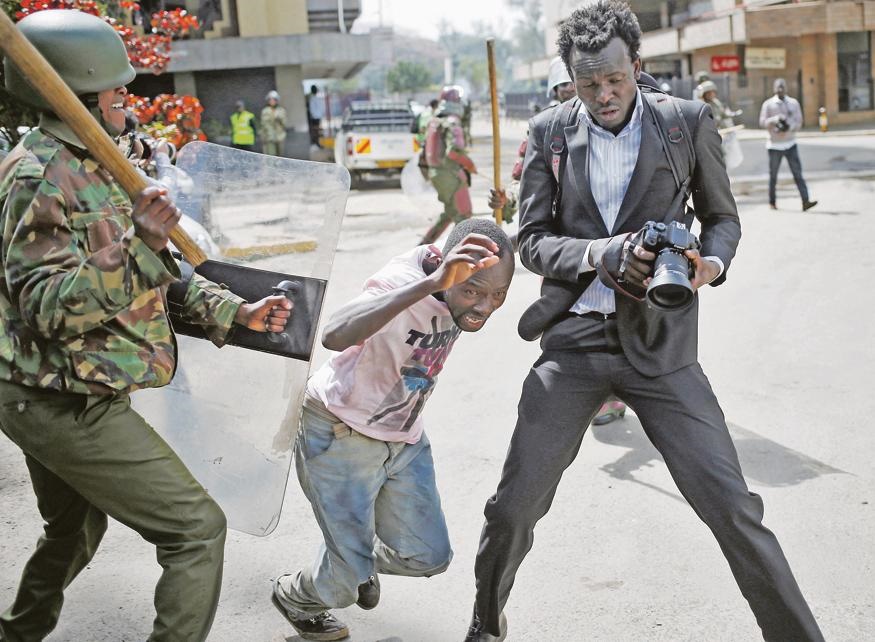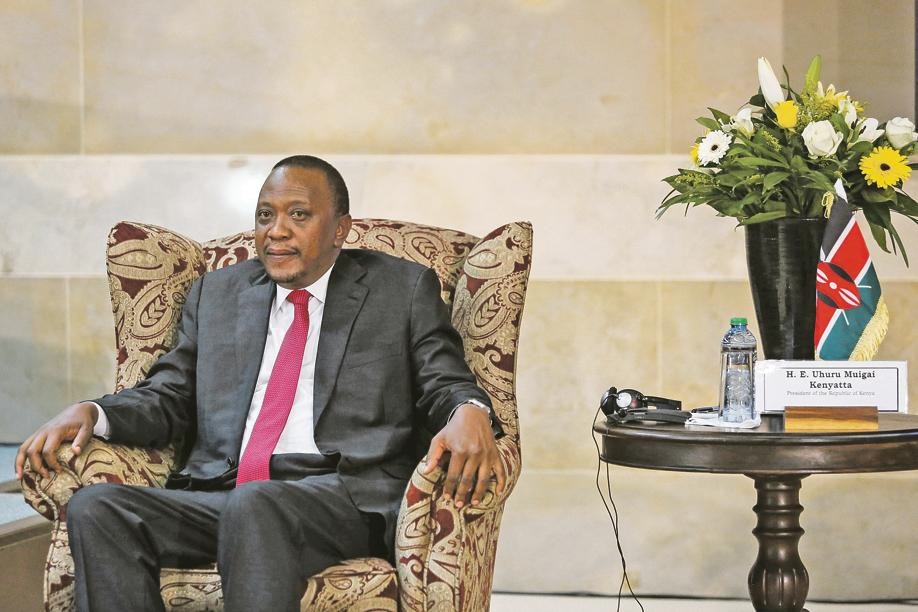
On the streets of Nairobi the day after police brutally clubbed and kicked a man while he was down, it was business as usual. Shops were open, buses and people went on their way. Elsewhere in Kenya, President Uhuru Kenyatta was planning to meet constituencies he hadn’t interacted with since the 2013 elections.
Kenyans are, however, holding their breath for the next round of demonstrations. Protesters have vowed to return to the streets every Monday until their demands for reform of the electoral body are met, and this week was their third protest.
The police claimed they had to act to put a stop to looting and damage to businesses, which happened during Monday’s demonstrations.
Already some are saying that next year’s elections – where incumbent Kenyatta will run for a second term – could see a repeat of the country’s bloody 2007 elections.
Support for Kenya’s elections body, the Independent Electoral and Boundaries Commission, is worryingly low. The country’s Daily Nation newspaper on Monday published the results of a survey that showed only 43% of respondents thought the body could conduct free and fair elections.
The 44% who said they had lost faith in the body said it had opened its doors to political meddling and did a poor job of overseeing the 2013 elections.
Former prime minister Raila Odinga, now the leader of the opposition Coalition for Reforms and Democracy, still maintains that the previous elections, where he ran unsuccessfully for the presidency, were rigged.
Corruption scandals within the body haven’t helped matters.
It is, however, the increasing police violence that has ordinary citizens worried.
Charles Dienya, the chairperson of youth nongovernmental organisation Green Generation Association and supporter of the Coalition for Reforms and Democracy, said police reforms envisaged in the country’s 2010 Constitution never happened.
“In the postelection violence [in 2008], most people died because of police brutality,” he said.
The Constitution provides for an independent institution to deal with police reforms, and to act as an oversight and complaints body to deal with police conduct, but this was not happening.
“The demonstrations are peaceful most of the time, but citizens end up being brutally beaten by the police,” Dienya said.
Widespread human rights abuses were reported towards the end of the regime of Daniel arap Moi’s 24-year tenure at the turn of the century.
Kenyan human rights group, the Independent Medico-Legal Unit, reported 126 killings by police officers and wildlife rangers last year.
Last month, a video clip went viral of police beating up students with sticks and clubs while they were lying down during a protest at the University of Nairobi.
Kenyan and international human rights groups condemned this week’s police violence, and the US embassy in Kenya called the force applied by the police “excessive”.
Yarik Turianskyi, from the SA Institute of International Affairs at the University of the Witwatersrand, who was in Nairobi and close enough to hear the whistling and commotion during Monday’s protests, said different governments reacted differently to protests.
“In some instances, we have peaceful protests, but still governments send out helicopters and police in riot gear, and they beat up protesters. In other instances, you will have peaceful protests and marches on government, and it will serve to create dialogue,” he said.
This week, a civil society meeting was held in Nairobi about the future of the African Peer Review Mechanism, an instrument for African countries to evaluate each other’s systems of governance and finance. The police violence featured prominently at the meeting.
Turianskyi said that because police brutality in Kenya was making international headlines, it was likely to come up in the country’s second peer review report, which is due for release next year.
Kenya is the first country to undergo a second review. Ironically, its first review, which was done before the 2007 elections, correctly predicted the violence that followed, but little was done about it.
Nevertheless, Kenyatta, who was elected to chair the African Peer Review Mechanism during last year’s African Union summit in Johannesburg, has pushed for the flagging mechanism to be revived.
Peter Kimemia from the Kenya Nepad secretariat, which primarily deals with the African Peer Review Mechanism, said it was important that the disgruntled parties got together to talk about their issues around the elections body because the new Constitution made provision for changes.
He believed that the problem should be addressed holistically and that protests were not the answer.
“When you are not getting what you are looking for in terms of support from the people in the street, you tend to push extralegal means. The people who are complaining blame the Independent Electoral and Boundaries Commission for losses, but they have been quiet in the places where they won [by-elections].”




 Publications
Publications
 Partners
Partners









